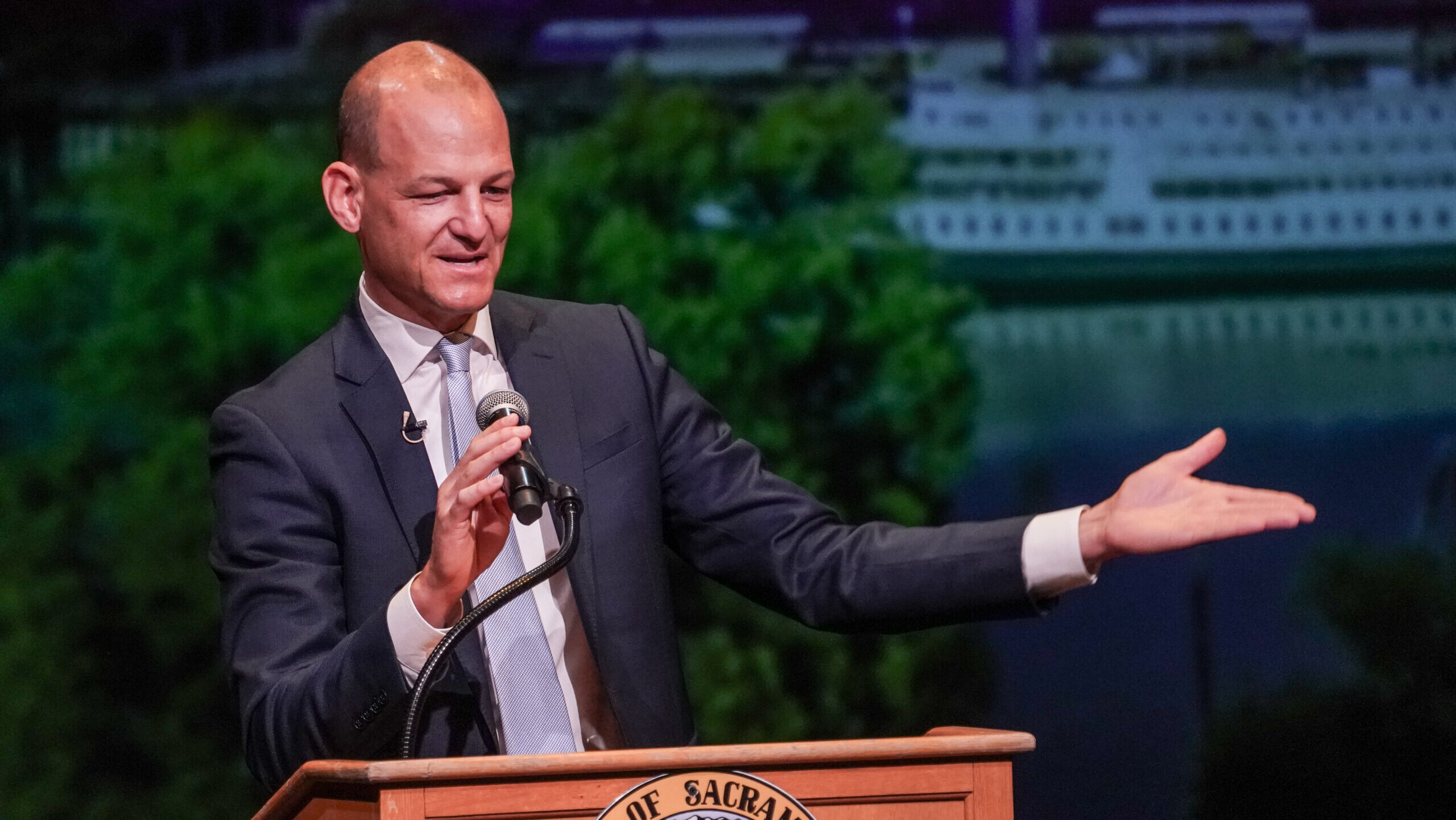The Abridged version:
- Mayor Kevin McCarty wants to increase property transfer taxes on “high volume” sales to fuel housing and homelessness programs.
- The program could put up to $10 million toward new down payment assistance for first-time homebuyers and rental assistance programs.
- Sacramento voters could see the proposal appear on the November 2026 ballot.
Sacramento leaders have their eyes on a tax increase to provide new down payment assistance for first-time homebuyers and rental assistance to prevent people from becoming homeless.
Sacramento Mayor Kevin McCarty highlighted the proposal at Monday’s State of the City address.
McCarty is proposing increasing the city’s property transfer taxes to generate up to $10 million per year that would be earmarked for housing programs and reducing homelessness.
“I’m really concerned about this generation being able to afford to buy a home and stay in Sacramento and not move to Austin or Salt Lake City,” McCarty said during an interview with PBS KVIE’s Studio Sacramento.
Taxes envisioned for ‘high volume’ sales
During the interview, McCarty said the taxes would be increased on “high volume” sales over a certain threshold. For example, the tax could be levied on property sales that are $1 million or more, the mayor told Studio Sacramento. The full interview will air on PBS KVIE at 7:30 p.m. Friday and be available via streaming online.
The proposal would likely go before a formal vote by the Sacramento City Council next summer and appear before voters on the November 2026 ballot.
Exact details on the amount of down payment assistance and who would be eligible for the program are not yet available, as the proposal is still in its initial research phase, said Andrew Acosta, the mayor’s consultant on housing issues.
“We’re trying to do something that fits the city but also helps more people,” Acosta said. “We can’t depend on federal funding.”
The city currently charges transfer taxes at a rate of $275 per $100,000 of sales price. The taxes are often shared by the buyer and the seller of a property.
The transfer tax increases would apply to both commercial and residential property transactions, the mayor’s office said.
The city brought in $12.4 million in transfer taxes under its 2024-2025 budget. Budget documents note that transfer tax revenue “can be volatile, fluctuating with housing market activity.” The city has seen the combined transfer tax and supplemental property tax bring in as little as $4.6 million some years and as high as $27.7 million other years, according to the budget.
Local real estate appraiser and housing analyst Ryan Lundquist said that both homebuyers and sellers are facing challenges in the current real estate market. Buyers are struggling with affordability, and sellers who bought property in recent years may not have much equity, Lundquist said.
“Putting one more thing on buyers isn’t welcome news,” Lundquist said.
Higher-end home sales make up a small portion of Sacramento’s property sales. About 10% of the Sacramento region’s home sales so far this year have been over $1 million, according to Lundquist. At the same time, he said that it’s difficult to predict what impact the proposed tax increase would have as few details are available over how much it would increase.
“If this is a modest amount, then let’s not overthink it and call it the end of the world,” Lundquist said.
More funding for rental assistance and tiny homes
The proposal could also earmark money for rental assistance that would help prevent people from becoming homeless.
“There are a lot of renters who are one step away from getting in trouble, behind on their rent and becoming homeless,” McCarty told Studio Sacramento.
The mayor is also hoping to use the funds to continue to invest in tiny home communities to bring people out of homelessness. The funds would be used to either expand the number of tiny homes or provide funding to keep the city’s current stock of tiny homes in operation, Acosta said.
“With the limited resources that cities and counties have, it’s great to focus on people most in need,” said Nur Kausar, board president of the Sacramento Housing Alliance.
The Sacramento Housing Alliance has been advocating for emergency assistance programs to help prevent homelessness. Kausar said that one study found that an infusion of $200 or $300 a month helped at-risk seniors avoid becoming homeless.
“Prevention and getting the most into housing is definitely what the folks that are most at risk need now,” Kausar said.
Felicia Alvarez is a reporter at Abridged covering accountability. She’s called Sacramento home since 2015 and has reported on government, health care and breaking news topics for both local and national news outlets.

